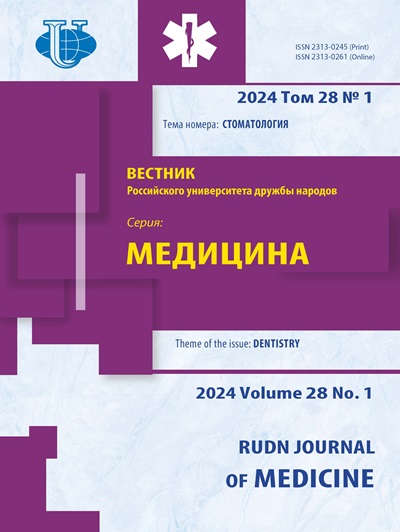Rational antithrombotic therapy in patients obstetric profile with various forms of thrombophilia
- Authors: Bashmakova NV1, Putilova NV1
-
Affiliations:
- The Ural Research Institute of Maternity and Child of the Ministry of Health and Social Development of the Russian Federation
- Issue: No S5 (2011)
- Pages: 184-192
- Section: Articles
- URL: https://journals.rudn.ru/medicine/article/view/3398
Cite item
Full Text
Abstract
In order to assess the effectiveness of different options antithrombotic therapy in the prevention and treatment of gestational complications in patients with thrombophilia were treated with 671 patient, 117 of whom received treatment since pregravidal phase and 554 — only during pregnancy, as treatment (II–III trimester). Depending on the version of the antithrombotic drug therapy were formed 3 groups: patients in the treatment of which used low molecular weight heparins, low molecular weight heparins in combination with drugs acetylsalicylic acid and heparinoids (sulodexide). All medications administered at the minimum therapeutic doses. Way to set the material – a simple method of randomization envelopes. The effectiveness of treatment was evaluated by dynamic changes in the hemostatic system and the nature of the circulation in the maternal-placenta-fetus. The study found that both the pregravidal stage and during pregnancy sulodexide monotherapy is the preferred unnecessarily, impacting on all links of the hemostatic system, can significantly improve the overall capacity of the blood coagulation and thereby reduce the proportion of severe complications of gestation.
About the authors
N V Bashmakova
The Ural Research Institute of Maternity and Child of the Ministry of Health and Social Development of the Russian Federation
Email: natput@r66.ru
N V Putilova
The Ural Research Institute of Maternity and Child of the Ministry of Health and Social Development of the Russian Federation
Email: natput@r66.ru
References
















